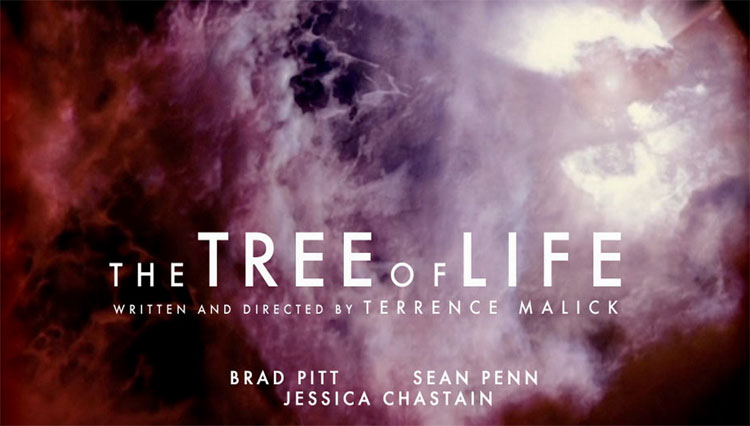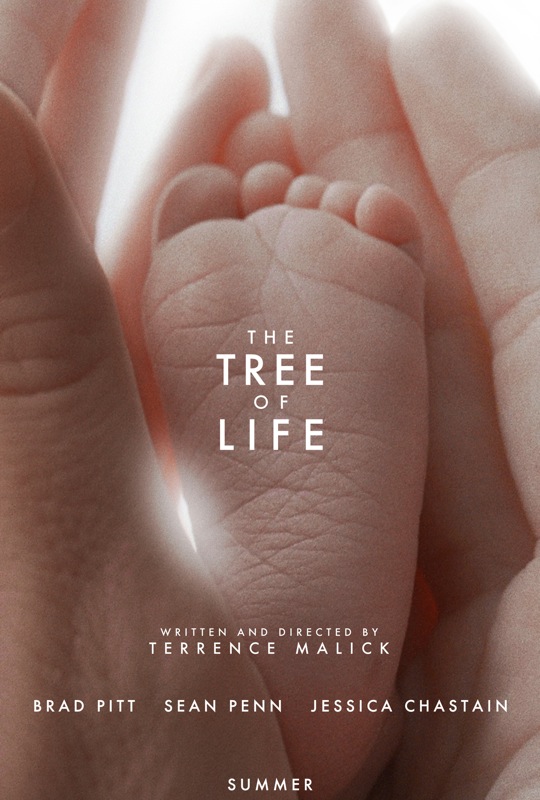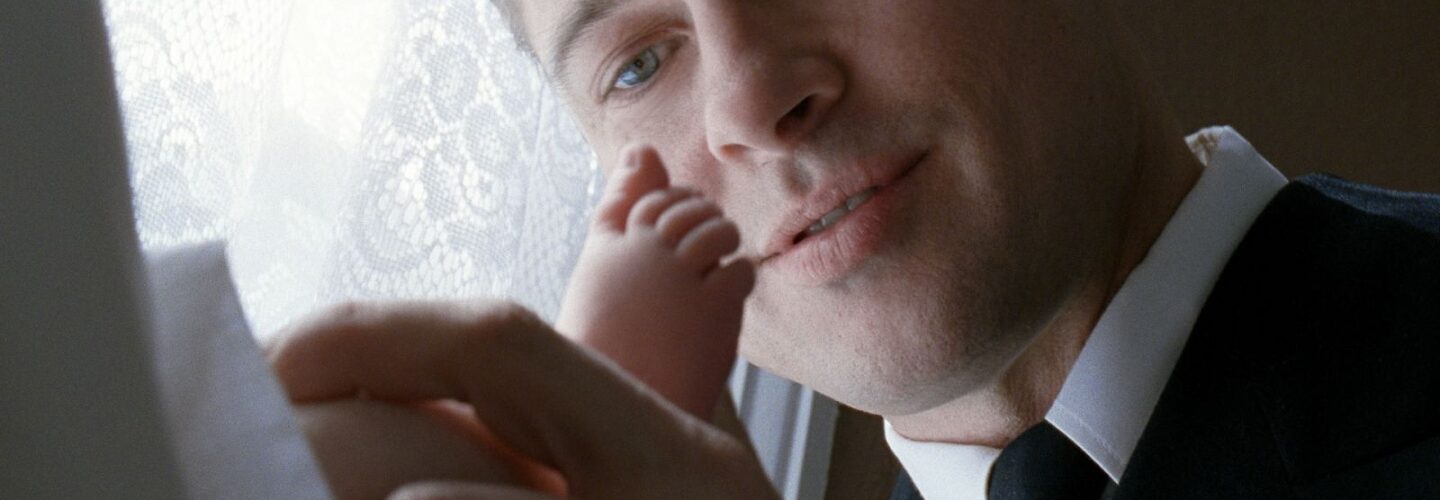
2011’s controversy in the world of film may have centred once again around Lars von Trier and his Cannes Film Festival outbursts, now dubbed ‘Larsgate’, yet this hasn’t been the most debated cinematic event of the year. Causing one cinema to post a sign, warning potential viewers to be wary of this “deeply philosophical film from an auteur director”, Terrence Malick’s The Tree of Life is still splitting audiences all around the world. Whilst many have heaped praise on Malick, labelling his latest work as a confirmation that cinema can aspire to art and a personal vision that dares to reach for the stars, others have condemned The Tree of Life brandishing it repetitive and even simplistic or achingly slow – whilst exiting my screening I heard exclamations from within murmuring groups of the audience claiming “well that was shit” and “that’s three hours of my life I’ll never get back”. Even at Cannes where the film won the distinguished Palme d’Or award, its premiere was marred when the movie’s final moments were almost drowned out by the booing, jeering and giggling in the auditorium.
As in court when you take the oath to tell “the truth, the whole truth and nothing but the truth”, I should probably start by admitting I am a huge admirer of Malick’s work and have been waiting eagerly for the release of The Tree of Life like a six year old waiting for Christmas day. Although, I don’t quite buy into Sukhdev Sandhu’s theories that for his admirers, Malick’s films are churches that cast their audiences as worshippers in search of higher truths, I will happily admit to finding the director’s work both challenging and enlightening in equal measures.
 Experiencing The Tree of Life, it’s easy to see why some won’t get on with the film; its plot is ambitious, seemingly covering everything (life, death, the universe, the soul, religion, spirituality) and nothing (the feel of the wind in your hair and the grass below your feet) in equal measures. Trying to encapsulate what it is a film about, is almost like trying to solve the mysteries of life, answering an unanswerable riddle, its scope is so broad and its meanings so wide, it’s almost that what we take away from the film depends on our own experiences and our own beliefs. Malick’s film is purposefully slow, yet at times we’re presented with such an abundance of information and visual stimuli we’re left somewhat dizzy and bewildered (a feeling I actually enjoyed). Although, when you think about exactly what you’re shown, how can a film that covers the creation of the universe and life in 139 minutes seem slow? There’s thousands upon thousands of years of history here squeezed into just over two hours.
Experiencing The Tree of Life, it’s easy to see why some won’t get on with the film; its plot is ambitious, seemingly covering everything (life, death, the universe, the soul, religion, spirituality) and nothing (the feel of the wind in your hair and the grass below your feet) in equal measures. Trying to encapsulate what it is a film about, is almost like trying to solve the mysteries of life, answering an unanswerable riddle, its scope is so broad and its meanings so wide, it’s almost that what we take away from the film depends on our own experiences and our own beliefs. Malick’s film is purposefully slow, yet at times we’re presented with such an abundance of information and visual stimuli we’re left somewhat dizzy and bewildered (a feeling I actually enjoyed). Although, when you think about exactly what you’re shown, how can a film that covers the creation of the universe and life in 139 minutes seem slow? There’s thousands upon thousands of years of history here squeezed into just over two hours.
Unless you’ve actually had one, The Tree of Life is the closest you’ll probably ever come to an out of body experience (or at the very least a tie with Enter the Void), Emmanuel Lubezki’s camera floats around the Malick universe as if it were a lost spirit wandering the earth trying to make sense of what it sees. For many this ethereal feeling was just too much, too over the top, but for me it just never came across that way. There’s no doubting the O’Brien family at the heart of The Tree of Life are God-fearing Christian folk, but the subjects covered here transcend religion, transcend god, this is a film about so much more.
However experimental The Tree of Life may be, Malick’s strong personal style shines throughout his film, with whispering voice-overs and floating camerawork leaving you in no doubt you’re watching a director work with complete creative control. Malick is in all senses an auteur, but he is a rare breed, an auteur working within Hollywood, but not within its constraints and guidelines and this is where the misconceptions surrounding The Tree of Life begin. Where Malick fans will be blessed with an insight into what to expect from the eclectic director, the general film going public with no real association with the director’s work will be entering the film totally unprepared for what they are about to be a part of. For some this would be a good thing, a pleasant surprise from the generous world of film, but for others it’s bound to be a huge disappointment. The Tree of Life may be an ‘art film’ in form and content, but with its A-list Hollywood stars it was always bound to attract a more mainstream audience than other films of this ilk could expect. The film’s marketing strategy could be somewhat to blame for this, opting for a less is more approach, it revealed little to those not wanting to discover the film’s premise, but also to those eager to find out more (maybe that one cinema in America was right to include a warning!).
Francis Bacon once declared that “the job of the artist is always to deepen the mystery” and this is exactly what Malick has achieved with The Tree of Life. With the director’s latest and possibly greatest work of art he has managed to not only deepen the mystery surrounding life, but also the mystery of film. The Tree of Life has drawn numerous comparisons to Stanley Kubrick’s 2001: A Space Odyssey, but in truth this comparison strikes as weak and lazy, The Tree of Life is a separate entity altogether (let me state at this point I am in no way claiming that Malick’s film is better than Kubrick’s). What Malick has managed to construct is a film created to unlock memories and evoke emotion, almost allowing its audience the time and space to drift away into their own thoughts, traveling back into recollections of childhood or predictions of future years. The Tree of Life feels so familiar, but is like nothing I have ever seen before, it is confusing and bewildering, but seems to be about everything I already know, this is a film that has crawled inside my head and refuses to leave……….and I’m still not sure if I truly love it or if it has just tricked me into loving it!


